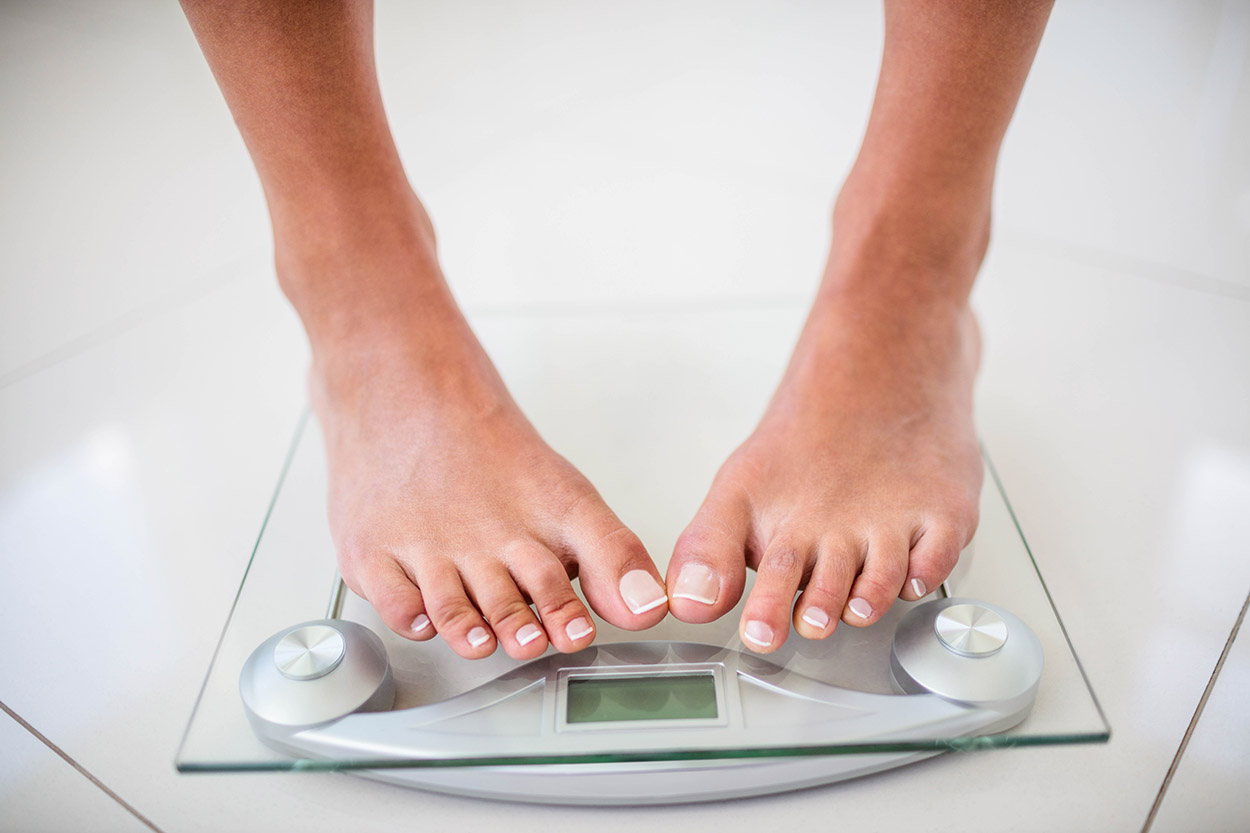 Menstrual Period Calculator
Menstrual Period Calculator

Irregular Periods, Fertility, and How Aging Affects Reproductive Health
- Guide Authored by Corin B. Arenas, published on October 15, 2019
Need to know when your next period will fall? How about your most fertile days in the month?
If you’re trying to conceive, our period calculator will help track your monthly cycle and peak fertile days. It also includes an estimated due date if you successfully conceive within the time frame.
Likewise, you may use it to plan your pregnancy and avoid having a baby.
However, take note that this is most effective if you have a 28-day ovulation cycle. Frequent period irregularities make it challenging to estimate your fertile days and conceive a baby.
What Causes Irregular Periods?

A woman’s menstrual cycle is considered irregular if it lasts more than 38 days.[1] Other signs it’s irregular include:
- If the number of days your period lasts varies too much
- If the time between your periods change
- If you lose less or more blood than usual during your period
Many factors can cause period irregularities, but it’s often attributed to hormonal changes. Inconsistent periods also signal low fertility.
According to Web MD, shifting progesterone and estrogen levels can disrupt regular menstrual patterns.[2] This is why young pubescent girls and women about to go through menopause (perimenopause) usually get irregular periods.
Health conditions that cause irregular periods:
- Polycystic Ovary Syndrome (PCOS)
- Thyroid Disorders (Hypothyroidism/Hyperthyroidism)
- Uterine Fibroids
- Endometriosis
- Excessive Weight Loss and Being Overweight
- Too Much Exercise
Out of these conditions, hypothyroidism and PCOS are the most common causes of period irregularity. Certain medications may also disrupt your menstrual cycle, such as:
- Antidepressants
- Blood thinners
- Epilepsy drugs
- Aspirin and Ibuprofen
- Hormone replacement therapy drugs
Polycystic Ovary Syndrome (PCOS)

Frequently missing periods is a common symptom of PCOS.[3] Women also experience heavy bleeding, painful cramps, and bloating whenever they get their period.[4]
It’s called ‘polycystic’ because some patients develop cysts in their ovaries. The cysts are follicles that contain eggs that did not mature to start ovulation. Patients can have it removed via surgical operation.
However, many women with PCOS do not have cysts. It’s an endocrine system disorder characterized by an imbalance in reproductive hormones, which often involve:
- Excess levels of androgens – Male hormone
- Low levels of progesterone – Hormone vital for childbearing
- Elevated blood sugar levels – Hormones regulate blood sugar, so your body may be resistant to insulin
Can I still have a baby even with PCOS? Yes, you can still get pregnant. It may take time, but with proper treatment and fertility medication, it’s possible. PCOS affects up to 27% of women in their childbearing years, from ages 15 to 44.[5, 6]
Apart from making periods hard to predict, PCOS brings other health problems such as:
- Increased risk of high blood pressure
- Increased risk of diabetes
- Mood swings
- Weight gain
- Pelvic pain
- Acne breakouts
- Hair loss or unwanted facial and body hair
- Darkening of skin and skin tags around neck and underarms
PCOS treatment varies according to age, symptoms, and whether or not a woman wants to conceive.
For overweight patients, it helps to lose 5-10% of body weight. This boosts fertility and makes medications more effective. To control blood sugar levels, your doctor may prescribe metformin, a diabetes drug, to reduce insulin resistance. It normalizes the ovulation cycle and helps you lose excess weight.
For patients not planning to have a baby, a healthcare provider might prescribe hormonal birth control. This regulates periods, lessens acne and unwanted body hair, and reduces risk of endometrial cancer.
Thyroid Disorders (Hypothyroidism / Hyperthyroidism)

Research in 2015 found that out of 50 participants in a study, around 44% of women with irregular menstrual cycles also had thyroid problems.[7]
Hypothyroidism is an underactive thyroid which does not produce enough hormones that regulate the body’s energy. Around 4.6 of the U.S. population is affected by this condition, states the National Institute of Diabetes and Digestive and Kidney Disease (NIDDK).[8]
Similarly, a hyperthyroidism occurs when it produces too much T4 and T3 hormones. According to NIDDK, around 1.2% of the U.S. population have an overactive thyroid.[9]
| Symptoms of an Underactive Thyroid | Symptoms of an Overactive Thyroid |
|---|---|
| Irregular periods, fertility issues | Fast heartbeat and irregular heartbeat |
| Slowed metabolism | Changes in the menstrual cycle |
| Slowed heart rate | Increased appetite |
| High blood cholesterol | Nervousness and restlessness |
| Fatigue | Inability to focus |
| Weight gain | Weakness |
| Constipation | Sleeping difficulty |
| Muscle weakness | Thin, brittle hair |
| Pain the joints | Itching of the skin |
| Sensitivity to cold | Vomiting and nausea |
| Depression | Protruding eyes |
| Swollen thyroid gland (goiter) | |
| Weight loss | |
| High blood pressure | |
| Mood swings | |
| Dizziness* Shortness of breath* Loss of consciousness* |
* Get medical help right away if you experience any of these:
Thyroid disorders based on symptoms alone are hard to diagnose. If you think you may have a thyroid problem, get yourself tested at a clinic to rule out other conditions.
What causes thyroid problems? Underlying conditions may trigger it. Hypothyroidism is usually attributed to an autoimmune disorder called Hashimoto’s diseases. On the other hand, hyperthyroidism can be caused by an autoimmune disorder called Grave’s diseases.
Treatment for hypothyroidism often involves prescription of synthetic hormones (T4). Some drugs can hinder the absorption of synthetic thyroid hormones, so be sure to inform your physician about other medications.
For hyperthyroidism, treatment depends on the patient’s age and overall condition. But most methods focus on reducing hormone production to normal levels.
Some common treatments include anti-thyroid medication or oral radioactive iodine (which is balanced by anti-hypothyroid drugs).[10] Your doctor may also prescribe beta blockers to regulate high blood pressure.
For pregnant women with overactive thyroid, thyroidectomy is usually recommended. It’s safer compared to taking radioactive iodine which is harmful to babies.
Uterine Fibroids

These are muscular tumors that grow in the uterus. Though most uterine fibroids are not cancerous, they can cause painful, heavy periods.[11] Its other symptoms include:
- Pain during intercourse
- Lower back pain
- Pelvic pressure
- Leg pain
Abnormal growths can range in size from something as small as a pinhead, to the size of an orange. If it’s severe enough, it can even cause anemia.
Treatment: Fibroids can be managed with over-the-counter (OTC) pain relievers and iron supplements to prevent anemia.
Endometriosis

This disorder occurs when tissues that form the lining of the uterus grow outside the uterine wall.
Endometriosis affects around 1 out of 10 women of reproductive age, according data from the American College of Obstetricians and Gynecologists. (ACOG)[12]
It causes severely painful and heavy periods, with some women not able to go to work. Other symptoms include:
- Prolonged periods
- Bleeding between periods
- Infertility
- Pain during and after intercourse
- Painful bowel movement
Treatment: There’s no known cure for this condition. However, the pain can be managed by medication and hormone therapy.
Extreme Weight Loss and Being Overweight

Losing or gaining too much weight can cause periods to stop.
Excessive weight loss is associated with lack of calories and nutrient deficiency. This disrupts the body’s ability to produce hormones required for ovulation. Women who are underweight also experience frequent headaches, fatigue, and hair loss.
On the other hand, being overweight or obese can cause irregular menstrual cycles. A study in 2012 showed too much weight can affect hormone and insulin levels, which disrupts monthly periods.
Treatment: For both conditions, it is a must to eat a healthy diet and start a fitness plan. Talk to your health care provider for a safe diet and exercise plan that’s right for you.
Too Much Exercise

Excessive exercise and intense physical activities can disrupt a woman’s menstrual cycle.
Amenorrhea, which is another term for missed or stopped periods, is common among professional athletes. A study published in Human Reproduction highlights how women like ballet dancers who engage in intense training are prone to secondary or primary amenorrhea.[13]
Missing periods is also correlated to higher percentage of lean mass. This is because women need at least 20% body fat to maintain reproductive function to support childbirth.
How to Improve the Regularity of Your Periods

To help regulate your period cycle, it’s important to keep your body healthy. You might have heard stress can disrupt your monthly period, and there’s truth in that.
Here are several things you should do to keep your menstrual cycle normal.
- Maintain a Healthy Weight – As previously mentioned, being over or underweight interferes with your body’s hormones. Know your ideal weight the effort to maintain it.
- Engage in Regular Exercise –Devote time for exercise to achieve a healthy body. Try to go for a walk, jog, or hit the gym with friends a few times a week. Shake yourself out of a sedentary lifestyle. Regular exercise is also a common treatment plan for PCOS.
- Eat a Balanced Diet – Make sure to eat nutritious meals. Avoid too much processed food and add more lean meat and vegetables into your diet. Cut down the carbs, sweets, or anything you like eating in excess.
- Get Enough Vitamin D, B and Calcium – A study in 2015 suggested that vitamin D supplementation can help regulation periods.[14] There’s also evidence that vitamin B-6 and calcium can help reduce the symptoms of premenstrual syndrome (PMS).[15]
- Reduce Your Stress Levels – Managing your stress levels is not only good for your emotional well being, it’s also beneficial for your reproductive health. Research in 2015 suggests that too much emotional stress is associated with irregular periods.[16] Try to do relaxing activities you enjoy. Learn to calm yourself down by doing breathing exercises through meditation and yoga. Finally, get enough quality sleep.
When are Women Most Likely to Conceive?

Women are most fertile during their 20s and early 30s. They have the best quality eggs at this age range, according to Beth W. Rackow, M.D., associate professor of obstetrics and gynecology and pediatrics at Columbia University Medical Center.[17]
Couples at this age have higher chances of conceiving a healthy, normal baby. It’s also the time when they’re least likely to wait when they’re attempting to get pregnant.
How likely will a woman get pregnant during peak fertility?
Healthy women in their 20s or 30s have a 25-30% chance of conceiving in one menstrual cycle, according to ACOG.[18]
As Women Age, How Does Fertility Change?

ACOG states that fertility rates rapidly decreases after the age of 37.[18] The chances of getting pregnant at 40 drops to less than 10% every menstrual cycle.
Despite this fact, more women are now having babies at an older age. In 2018, Pew Research Center reports that 86% of women in the U.S. are having children at ages 40 and 44.[19]
What is Menopause?
Women who do not get their menstrual periods for 12 months are considered to be in a state of menopause. According to Medicinenet.com, many women experience menopause between 45-55 years old, but it can happen as earlier in their 30s or 40s (perimenopause).[20]
What is Infertility?
The American Pregnancy Association (APA) states that infertility is assigned to couples who have been struggling to conceive for at least a year without success.[21] Infertility affects around 10-15% of couples in the U.S.
When Should Women Consider Freezing Their Eggs?
In an article by Parents.com, the American Society of Reproductive Medicine (ASRM) notes that freezing eggs works best for women in their 20s and 30s.[22] It is not recommended for women 38 years old and above.
Most fertility specialists say you shouldn’t wait until you’re in your late 30s or 40s to have your eggs frozen. The younger you are, the better chances you have of getting pregnant.
What Should Men Do to Enhance the Chances of Conception?

Similarly, men’s fertility also declines with age. However, this varies and is not as predictable like women.
For men, the most common cause of infertility is associated with sperm production and quality.
The APA states that azoospemia is a condition where no sperm cells are produced, and oligospermia is characterized by low sperm cell production.[22] Sometimes sperm is not formed properly, which means it dies before it reaches the egg cell.
To treat it, there are medications that can help men improve their sperm count and quality. Fertility is also associated with overall health and fitness.
Here are several things men can do to improve the chances of conception:
- (If you’re a smoker) Quit Smoking – Studies show smoking can impair semen quality in men.[23, 24]
- Don’t Drink Too Much Alcohol – The Mayo Clinic states that drinking alcohol can decrease testosterone levels, lower sperm production, and even erectile dysfunction.[25]
- Adopt a Healthy, Balanced Diet – Add more lean meat, fruits, and vegetables into your diet. If you tend to eat more processed foods high in carbs and sugar, you should start cutting them down.
- Exercise and Maintain a Healthy Weight – Get regular physical activity and avoid a sedentary lifestyle. The right weight also linked with higher fertility in men. According to VerywellFamily.com, overweight or obese men have lower testosterone levels and sperm count.[26]
- Reduce Your Stress Levels – According to the National Institutes of Health, severe stress may cause lower sperm production.[27] Managing your stress levels can help improve your sex drive or libido.
When Should Couples Consult a Fertility Specialist?

The University of Utah Center for Reproductive Health states that on average, it takes couples at least 5-6 months to conceive.[28]
If you are under 35 and have been attempting to get pregnant for 12 months without success, you may want to see a fertility expert. It will help you know if you have any underlying health issues affecting your ability to conceive.
The University of Utah highlights 7 reasons you should consider talking to a fertility expert:
- If you’ve had sex without birth control, but did not get pregnant
- If you are past the age of 35
- If you’ve had 3 or more miscarriages
- If your partner has issues maintaining erections
- If you have irregular periods, no period, or heavy bleeding
- If you and your partner have a history of sexually transmitted infections (STI)
- If you have a chronic or long-term medical condition
The Bottom Line
Tracking your menstrual cycle can help you conceive a baby successfully. However, it’s harder to estimate fertile days if you have irregular periods, which can be a sign of infertility especially with older women.
Irregular periods are caused by many factors, mainly hormonal changes. However, the most common causes are hypothyroidism and Polycystic Ovary Syndrome (PCOS).
Both men and women can improve their chances of conceiving by maintaining a healthy weight, exercising regularly, eating a balanced diet, and reducing their stress levels.
Experts generally recommend couples to see a fertility expert if they are unable to have a baby after a year of trying.
About the Author
Working as a health writer since 2016, Corin is interested in longevity research and how to improve the quality of human life. She holds a Master’s degree in Creative Writing from the University of the Philippines, one of the top academic institutions in the world, and a Bachelor’s in Communication Arts from Miriam College. Her other feature articles can be read on Inquirer.net and Manileno.com.
References
- https://www.medicalnewstoday.com/articles/322643.php
- https://www.webmd.com/women/why-is-my-period-so-random#1
- https://www.webmd.com/women/what-is-pcos#1
- https://www.cosmopolitan.com/uk/body/health/a12451785/pcos-symptoms-polycystic-ovaries-irregular-periods/
- https://academic.oup.com/jcem/article/101/3/787/2804711
- https://www.intechopen.com/books/contemporary-gynecologic-practice/polycystic-ovary-syndrome-
- https://link.springer.com/article/10.1007%2Fs13224-014-0650-0
- https://www.niddk.nih.gov/health-information/endocrine-diseases/hypothyroidism?dkrd=hispt0299
- https://www.niddk.nih.gov/health-information/endocrine-diseases/hyperthyroidism
- https://www.mayoclinic.org/diseases-conditions/hyperthyroidism/diagnosis-treatment/drc-20373665
- https://www.healthline.com/health/uterine-fibroids
- https://www.healthline.com/health/endometriosis
- https://www.ncbi.nlm.nih.gov/pubmed/3117838
- https://www.ncbi.nlm.nih.gov/pubmed/25879830
- https://www.ncbi.nlm.nih.gov/pmc/articles/PMC4794546/
- https://jcdr.net/article_fulltext.asp?issn=0973-709x&year=2015&volume=9&issue=3&page=QC01&issn=0973-709x&id=5611
- https://www.columbiaobgyn.org/profile/beth-w-rackow-md
- https://www.acog.org/Patients/FAQs/Evaluating-Infertility#causes
- https://www.pewsocialtrends.org/2018/01/18/theyre-waiting-longer-but-u-s-women-today-more-likely-to-have-children-than-a-decade-ago/
- https://www.medicinenet.com/menopause/article.htm
- https://americanpregnancy.org/infertility/what-is-infertility/
- https://www.parents.com/getting-pregnant/age/timing/freezing-your-eggs-5-things-you-need-to-know/
- https://www.ncbi.nlm.nih.gov/pmc/articles/PMC4639396/
- https://www.ncbi.nlm.nih.gov/pmc/articles/PMC4709430/
- https://www.mayoclinic.org/diseases-conditions/male-infertility/symptoms-causes/syc-20374773
- https://www.verywellfamily.com/tips-to-increase-fertility-for-men-1959906
- https://www.nhs.uk/common-health-questions/mens-health/how-can-i-improve-my-chances-of-becoming-a-dad/
- https://healthcare.utah.edu/fertility/when-should-you-see-a-fertility-specialist.php
Change privacy settings
